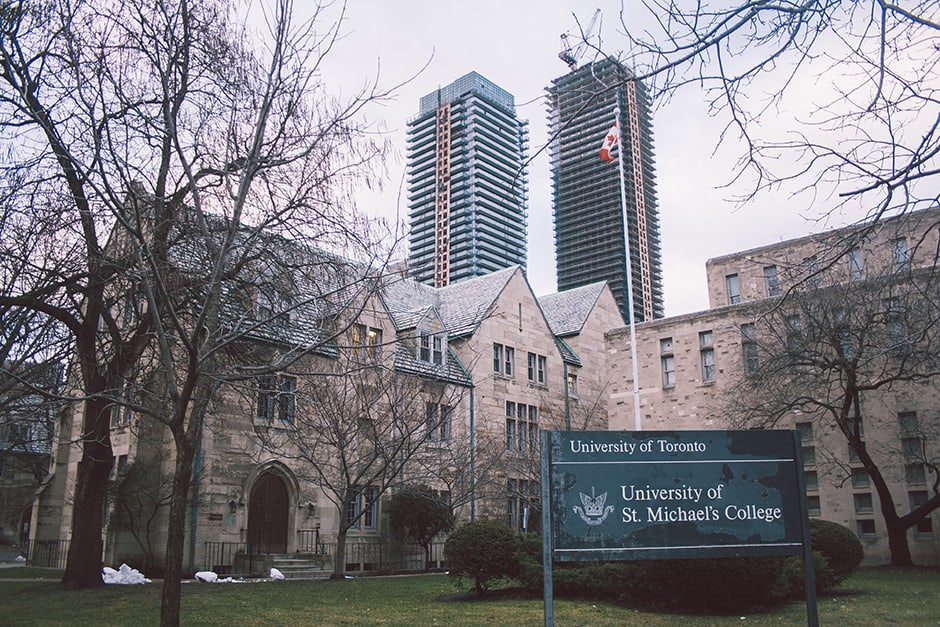Ongoing labour strife between University of Toronto administration and various campus unions continue to be a prominent feature of the 2014–2015 academic year.
On December 9, the faculty and librarians of the University of St. Michael’s College (USMC) voted unanimously to authorize a strike, if their representatives on the University of Toronto Faculty Association (UTFA) deem it necessary.
The UTFA has been in negotiations with university administration over a new agreement on employment conditions since last June. While neither party was able to provide specific details to The Varsity about what is being negotiated, a December 17 UTFA press release said that unresolved issues include “job security for faculty, workplace safety, and a fair and equitable monetary settlement.”
The vote does not indicate that a strike will necessarily take place, although it empowers UTFA leadership to call one. “Our team is committed to working towards reaching a deal,” says Michael Attridge, associate professor and chief negotiator for the UTFA-USMC. “We hope to resolve our differences without a strike. However, the bargaining team has a mandate and our members are a hundred per cent behind the team,” he adds.
As of press time, university representatives were unable to respond to questions from The Varsity.
When asked why students should care about the specific concerns of USMC faculty and librarians, Attridge stresses the importance of job security to academic freedom. “If proper job security is lacking, faculty are less free to engage in critical inquiry, which in turn diminishes the quality of student education,” he says.
Attridge says that such freedom is necessary if the university is to serve human knowledge and the common good. “At the heart of the university is academic freedom, which permits faculty to teach, research and publish, and carry out service work without fear of reprisal from the university, the state or any other source,” he adds.
The university administration has faced labour issues on numerous occasions throughout the 2014–2015 academic year.
In September, university administration and the United Steelworkers Local 1998, which represents some 7,000 workers at U of T, went to the eleventh hour in negotiations before coming to a deal on a new collective bargaining agreement.
In November, Units 1 and 5 of the Canadian Union of Public Employees Local 3902, which represents approximately 8,000 TAs and academic employees at U of T, voted in favour of giving their leadership a strike mandate.
No labour action has yet taken place, and negotiations are ongoing.
The UTFA and university administration are currently negotiating through provincial conciliation. The conciliation officer is a mediator appointed by the Ontario Ministry of Labour to confer with both union and employer to help them reach an agreement.
Though the officer is not empowered to make binding decisions, conciliation meetings are a legal requirement before any strike or lockout can take place.
Attridge says it is important to note that the union and the administration are still talking to each other in hopes of reaching a deal that works for both parties. “We will be back at the table on January 7 and the union-side will continue to work towards a settlement,” he adds.


